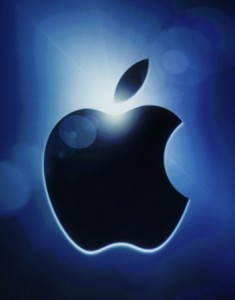China enjoying fruit of Apple’s labor
SAN FRANCISCO—People in China are not only making coveted Apple gadgets, they are snapping them up as the booming nation becomes a top market for the trend-setting California company.
Aftershocks of blockbuster Apple earnings powered by demand for iPhones in China echoed in rising stock markets on Wednesday.
Demand was “mind-boggling” in China, where revenue for the quarter was a record-high $7.9 billion, according to Apple chief executive Tim Cook.
Sales in China during the first three months of this year were triple what they were during the same period in 2011.
Apple took in $12.4 billion in China in the first half of the current fiscal year, putting the company easily on course to eclipse the $13.3 billion in Chinese sales it accrued in the prior 12 month period.
“China has an enormous number of people moving into higher income groups, middle-class if you will, and this is creating a demand for goods,” Cook said.
“There is tremendous opportunity for companies that understand China, and we are doing everything we can to understand it.”
Cook said that Apple had the “mother of all Januaries” that included launching the iPhone 4 in China.
Apple is hustling to open more stores in China and said it was thrilled with its freshly-minted relationship with China Telecom to provide service for iPhones.
“The China market should really scare Apple competitors,” said Creative Strategies lead analyst Tim Bajarin. “They have only been there a very short time and it is already 12 percent of their total business.”
The number of retail outlets selling Apple gadgets is about 11,000, a number expected to double within two years.
“Apple will clearly invest a lot of money in the China market,” said NPD analyst Stephen Baker. “They will do what they have to do to localize and invest in China.”
While China has been daunting for Silicon Valley firms such as Google or Yahoo! that specialize in services offered on the heavily-controlled Internet, Apple’s hip gadgets give it an edge there.
“To own an iPhone is a status symbol in China,” Bajarin said. “That is a huge issue that Apple can tap into.”
Status value could account for iPhone popularity in China despite starting prices of about $800 without service contract subsidies.
Apple has also done well at tailoring software for the China market.
“The key to Apple success in recent years is the ability to design products for global markets,” said Gartner analyst Michael Gartenberg. “The stakes in China are very high; but it shows that Apple is not just a US phenomenon.”
Apple’s cache has even trumped the loyalty that consumers in China have long shown to local brands, according to Baker.
“Other brands have had trouble penetrating China, whether TVs or PCs or whatever,” Baker said. “It is different for Apple.”
Chinese shoppers may take consolation from the fact that Apple gadgets are made in China, where the company has made much of efforts to improve working conditions.
While treatment of workers cranking out iPhones or iPads has gotten an international spotlight, it is not likely playing into decisions by Chinese shoppers, Bajarin said.
A teenage high-school student in China sold his kidney for an illicit transplant operation and used the proceeds to buy an Apple iPhone and iPad, state press reported early this month.
The 17-year-old boy, who was paid 22,000 yuan ($3,500), was recruited from an online chatroom, the Xinhua news agency said.
A surgeon and four others have been arrested and are facing charges of illegal organ trading and intentional injury.
Apple is selling its newest version of the iPad tablet computer in Hong Kong but not in Mainland China, where it is in a legal battle there with local firm Proview over the rights to the product name.
Apple reported on Tuesday that it made a profit of $11.6 billion on revenue of $39.2 billion in the quarter ended March 31.
Sales of iPads more than doubled from the same quarter the previous year and iPhone sales surged 88 percent. Apple sold more than 35 million iPhones and almost 12 million iPads, thanks to an “incredible quarter” in China, Cook said.
China is second only to the United States in demand for Apple gadgets and is expected to go top soon.
“China is a fast-growing market with a fast-growing middle-class,” Baker said. “That is a place you want to be because there are a lot of people to sell to.”
